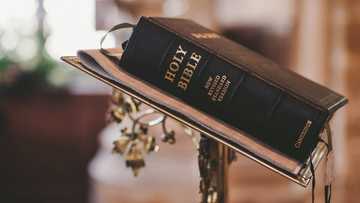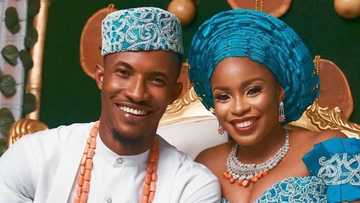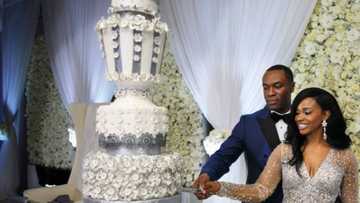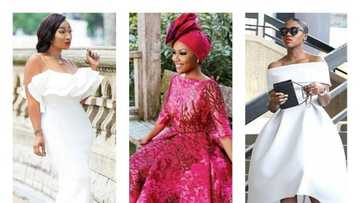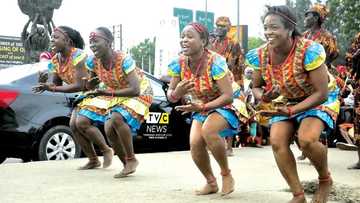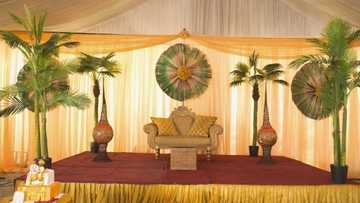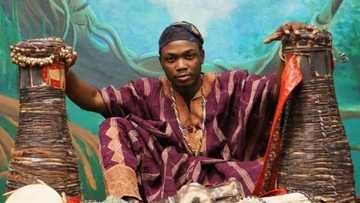Traditional Yoruba engagement ceremony
One of the things unique and popular in most of the cultures in Nigeria is how ceremonies and festivals are celebrated. Nigerian cultures are known for their big and colourful celebrations. Every culture in Nigeria has their uniqueness and peculiarities when it comes to celebrations. In this article, you will learn about the major aspects of a traditional Yoruba engagement ceremony.
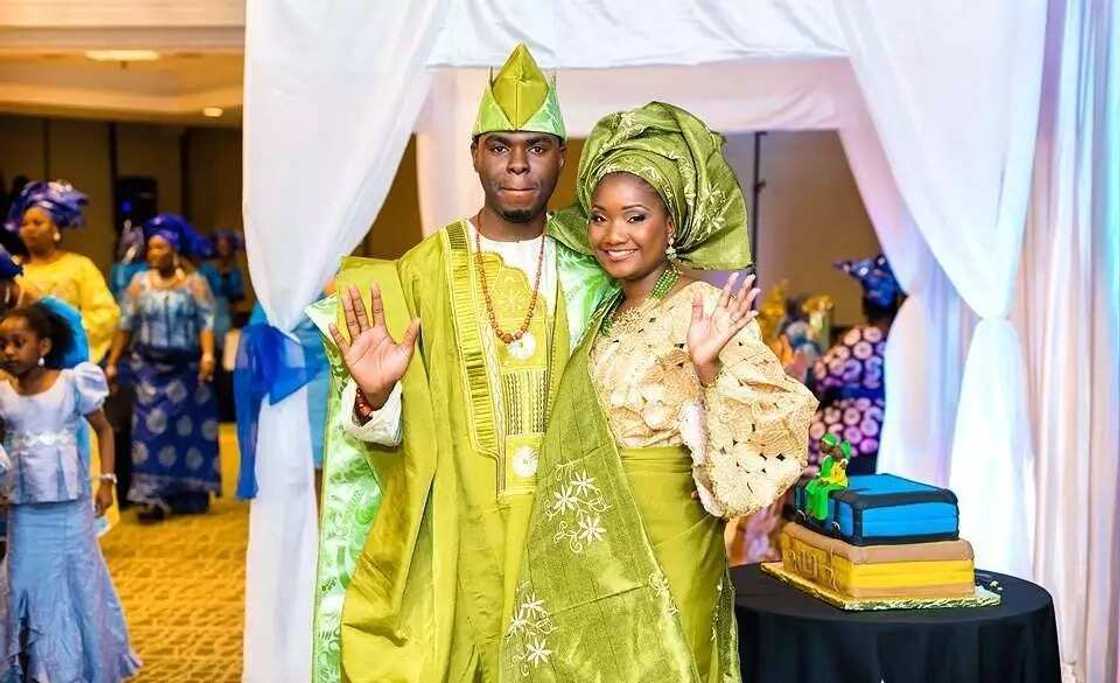
Wedding ceremonies are a big deal in the Yoruba culture. They are often celebrated in a colourful and glamorous manner. The Yoruba traditional engagement is a very serious event. But it also includes sumptuous meals, graceful colours, and lots of fun. It is an occasion where people come and display their best outfits, jewellery, and handbags.
It also involves spending a lot of money both on the planning of the event and on the day of the ceremony. With exposure to western culture, Yoruba wedding ceremonies have experienced some changes from the way they were celebrated in old times. But even with the exposure to western cultures and ideas, the core values of the Yoruba culture traditions of the ceremony are still maintained. The Yoruba traditional engagement ceremonies are carried out in stages. And each of these stages holds a big significance to the Yoruba culture and traditions.
The introduction ceremony
READ ALSO: Yoruba traditional wedding list: Do not miss anything!
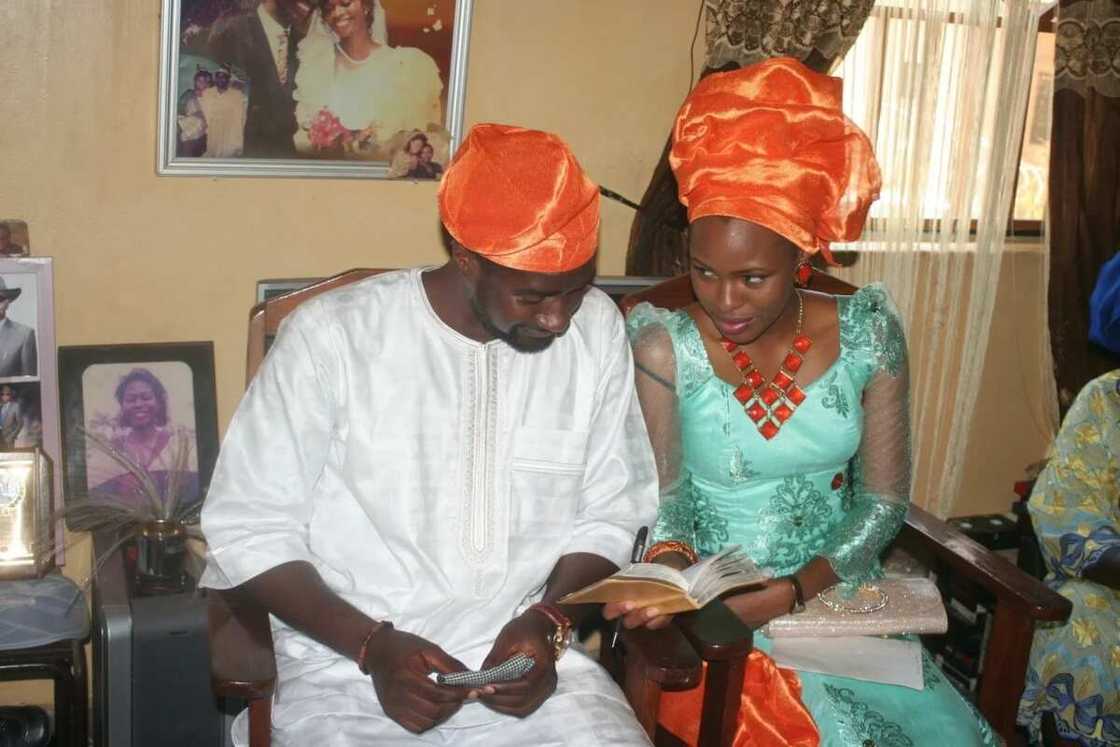
Before the engagement ceremony, the introduction ceremony must have taken place. The introduction ceremony is when the two families, the families of the bride and groom get to know each other. This usually takes place months before the big day of the engagement ceremony. The introduction is not a big event and it is without fanfare.
On the day of the introduction, the groom in the company of his parents and close family members pay a visit to the bride’s family. It doesn’t involve much spending. The groom’s family only goes with a few gifts like fruits, maybe some tubers of yam, and a few bottles of wine. The bride’s family will host the groom’s family and treat them to a simple meal of their own choice. The event only involves the formal and general introduction of both families to each other and things to know about each family. Only close family members are in attendance.
Besides the all-around introduction and all, both families might decide to agree on the date for the proper engagement ceremony. Fixing the date of the engagement ceremony on the day of introduction is not a must and often times such discussions usually take place later.
Planning for the engagement ceremony
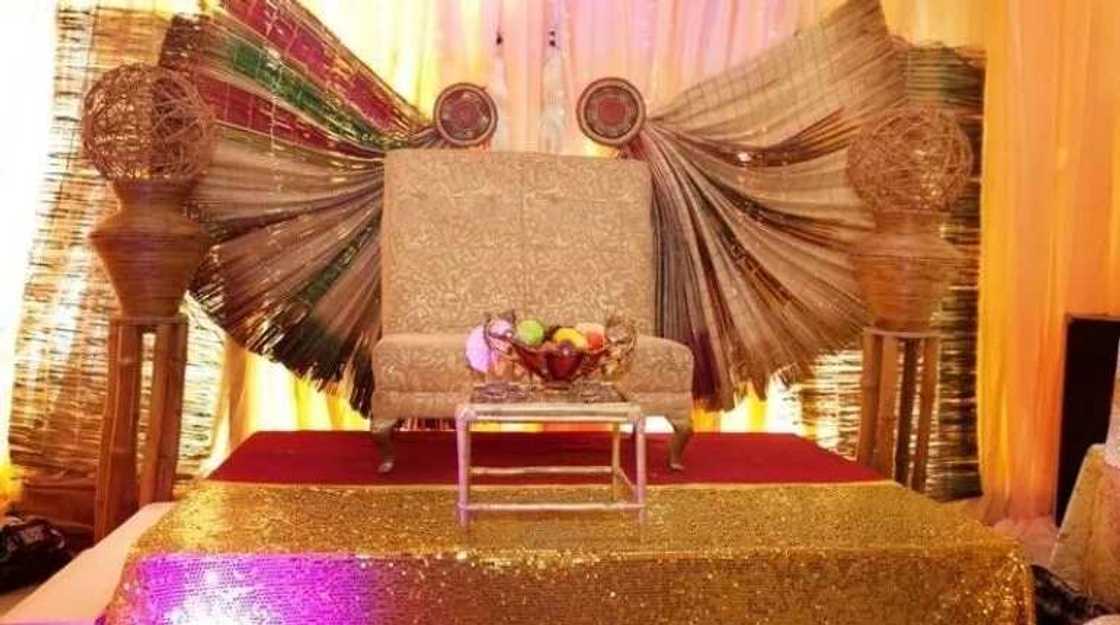
After the engagement ceremony date has been fixed, a wedding planner is employed to plan the event. In old times, the ceremony is planned by the bride’s family and the mother of the bride and women from her house are usually the ones involved in the planning. But in the modern days, an event planner is employed by the bride’s family or agreement of the two families.
The venue of the ceremony is chosen by the bride’s family or a compromise between the two families. But in the Yoruba culture traditions, the bride’s family selects the venue.
Then the colour of outfits for the ceremony is chosen and sometimes the type of traditional attire material. Both families might decide to choose the same colours and even type of material. They can decide to choose different colours. After the date, venue, and outfit have been decided, invitation cards are printed and sent to friends and families.
As stated earlier, the ideal thing is that most part of the ceremony especially the feeding is financed by the bride’s family. But sometimes, the groom’s family can contribute a larger portion if they are more financially capable. But I think these days, both families make a combined effort in the planning of the event.
Outfit for the engagement ceremony
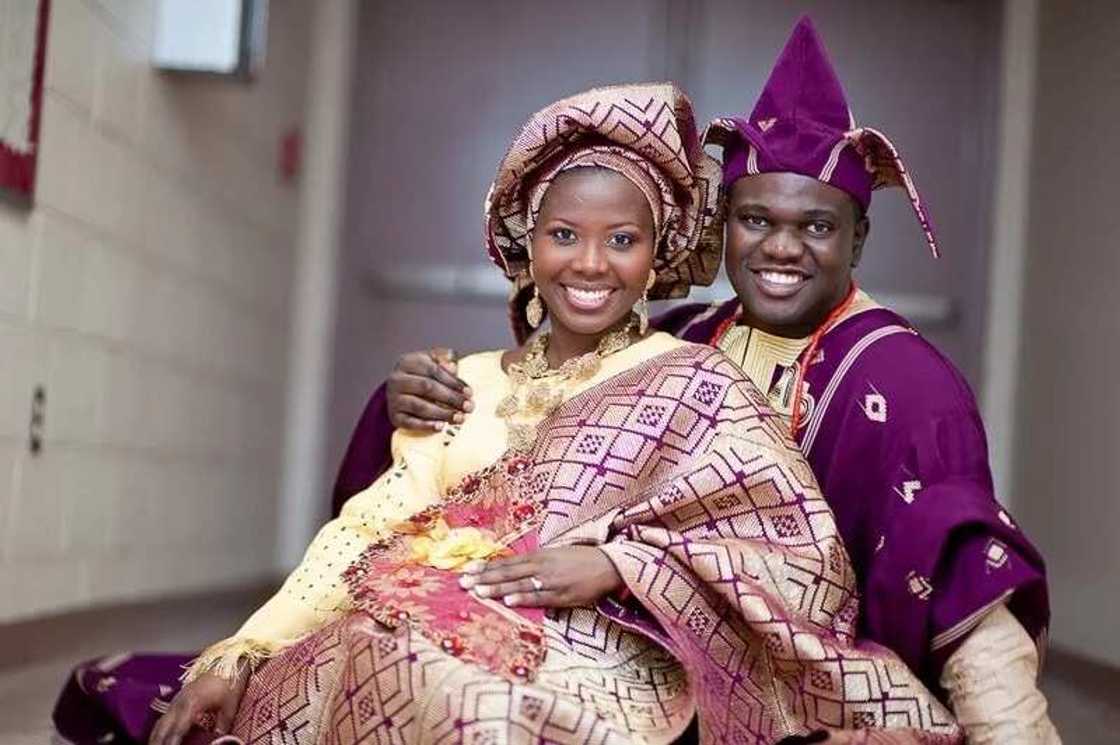
The attires worn for the Yoruba engagement ceremony is also an important aspect of the wedding. The bride and the groom wear matching Yoruba native attires usually known as “Aso Oke”. They are sown elegantly. The brides “Iro and Buba” sown elegantly is worn with a headgear known as “Gele” She wears other accessories such as beads, bangles, gold necklace, and earrings with matching shoe and bag or purse. The groom outfit is usually Agbada sown elegantly from Aso Oke material with a cap and matching shoes. He also wears other accessories like beads and wristwatch. The bride and groom’s outfit all depends on how wealthy they and their families are. But at least usually elegant than their normal tradition attire dressing.
The family members and friends on both sides also choose a colour that complements the one chosen by a bride and groom. In some families, the same material (type and colour) is chosen and bought be all close family members and friends of both families. All these also depends on how wealthy the two families are. You can see examples in some of the pictures used in this article.
The traditional engagement ceremony
The traditional engagement ceremony is coordinated by the Alaga Ijoko which can be translated as the master of the ceremony. The Alaga Ijoko is usually a family member with experience but sometimes a complete stranger who is a professional. In the Yoruba culture, the Alaga Ijoko is often a woman. Her responsibilities evolve around properly coordinating and officiating the proceedings of the ceremony and to make sure the provision of the cultures is adhered to. The Alaga Ijoko coordinates different stages of the ceremony, each of which might involve a collection of money.
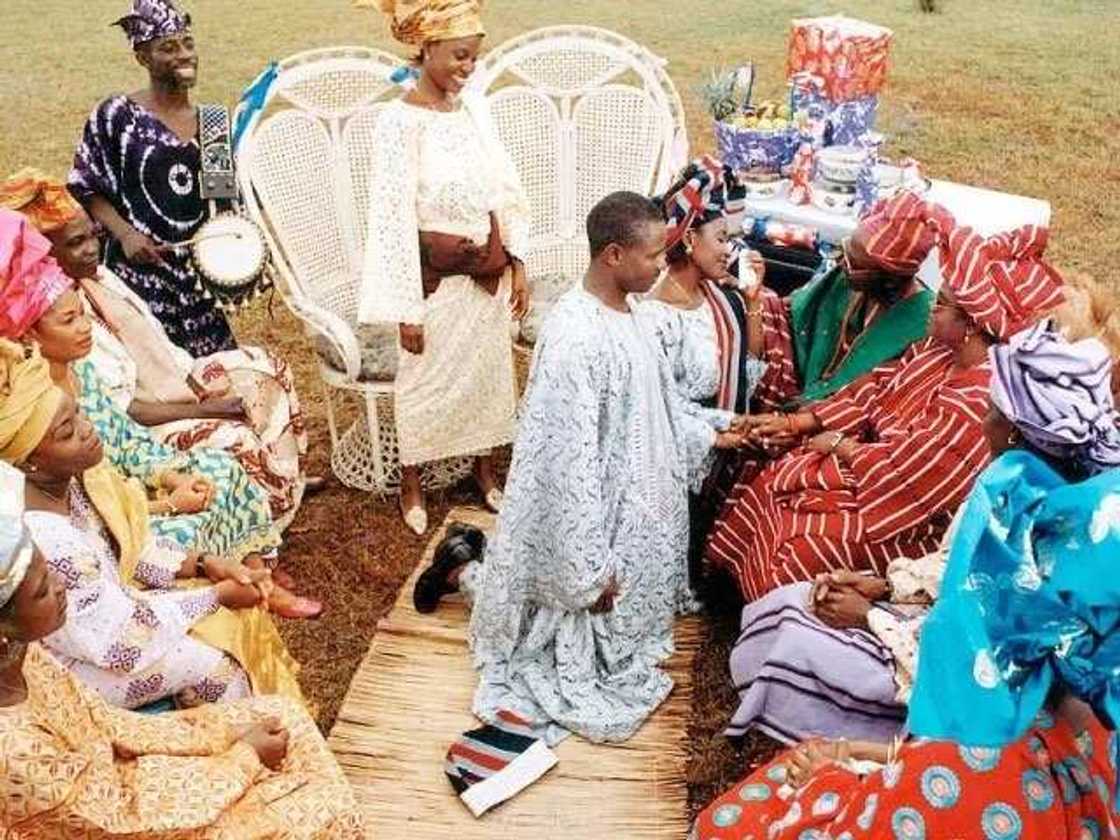
The family of the groom also hires a professional or someone with experience as the Alaga Iduro. The Alaga Iduro follows the groom’s family to request from the bride’s family the hand of their daughter in marriage. The Alaga Iduro, usually a woman also must be a good custodian of the traditions of the Yoruba wedding ceremony. And just like the Alaga Ijoko, the Alaga Iduro can be a family member or a hired professional.
The ceremony begins with the arrival of the bride's family. Then the groom's family are invited to the venue of the ceremony. The Alaga Ijoko moderates the entering of the groom's family and seeks permission from the bride's family before they are allowed to enter and seat. She then continues with the purpose of the gathering and other protocols.
An important aspect of the ceremony is the reading of a letter from the groom’s family also requesting for the hand of their daughter in marriage. The letter is usually read by a young lady from the bride’s family or a sister of the bride. The family of the bride also responds to the letter with a letter of their own.
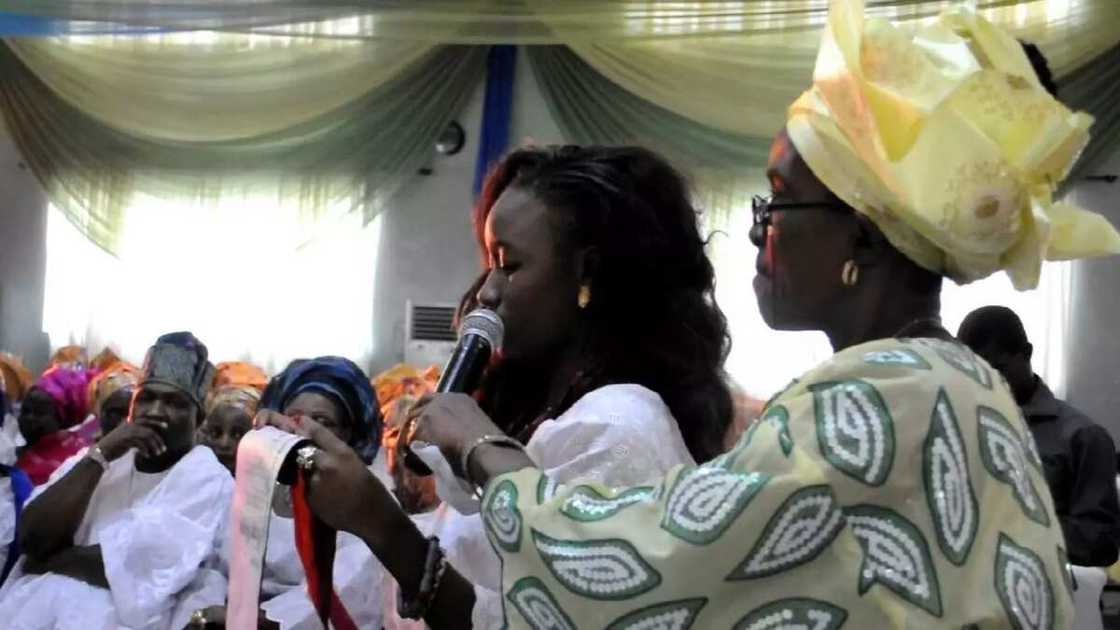
During the ceremony, the groom in the company of his friends and peers and brothers in the family will be formally introduced to the family of the bride. Together with all his friends and young men from his family, he will prostrate before the bride’s family directly in front of the bride’ parent or guardian to ask for the hand of their daughter in marriage. Most of these stages as stated earlier involve a collection of charges and fines in cash.
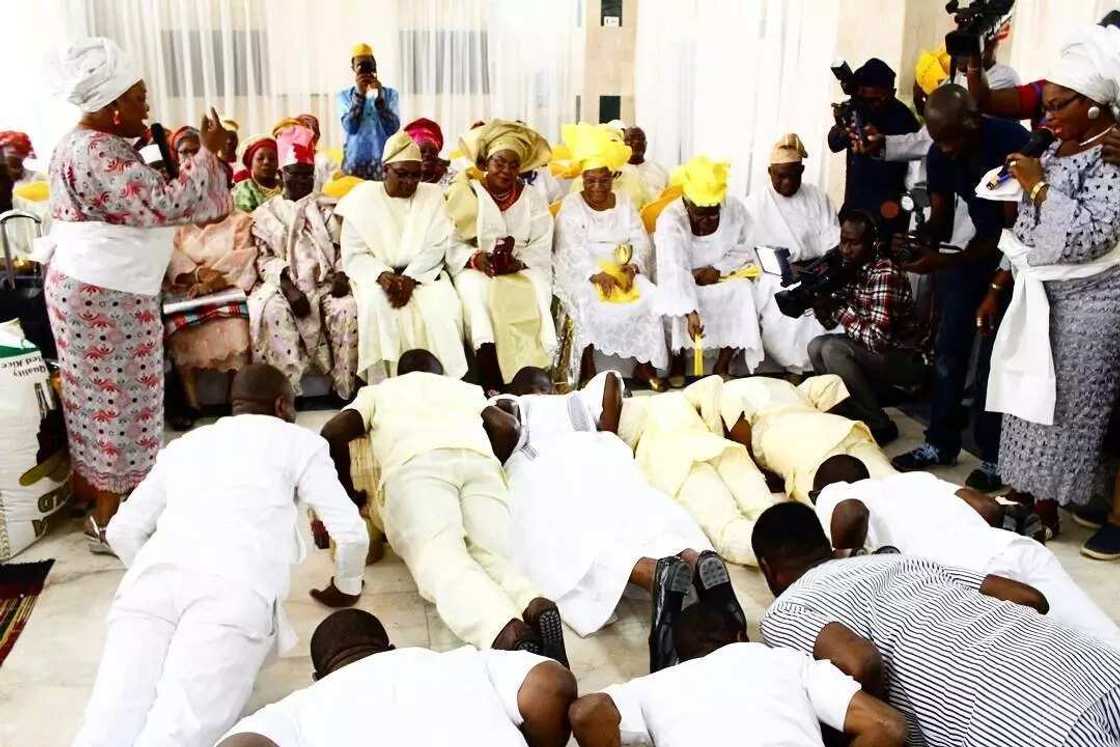
Another integral aspect of the engagement ceremony is the presentation of the dowry from the groom’s family to the bride’s family. The dowry is in a list of items for the engagement that has been sent to the groom’s family months before the engagement day. A dowry is a form of payment to the bride’s family for giving their daughter away to the groom’s family. The dowry varies from family to family but most of the items on the list are generally almost the same. Just little variations and maybe size and quantity. The dowry also includes money.
The groom
The engagement ceremony starts in the absence of both the groom and the bride. The Alaga Ijoko opens the ceremony and states the reason for the gathering. She puts the family of the groom’s family through a series of questions and answers in the absence of the groom. At one point, the groom’s presence will be required. He will be waiting somewhere very close to the venue of the ceremony usually in one of the houses around. Once the presence of the groom is required, he will be sent for and he will be accompanied to the venue of the ceremony by some young men from his family and his friends.
Upon his arrival, he will go through the introduction process and prostrating as stated above. After all the traditions have been observed and all requirements have been met, he will be allowed to sit on one of the two chairs decorated for the groom and bride. The chairs are artfully and colourfully decorated by the wedding planner with colours matching that chosen for the event.
The bride
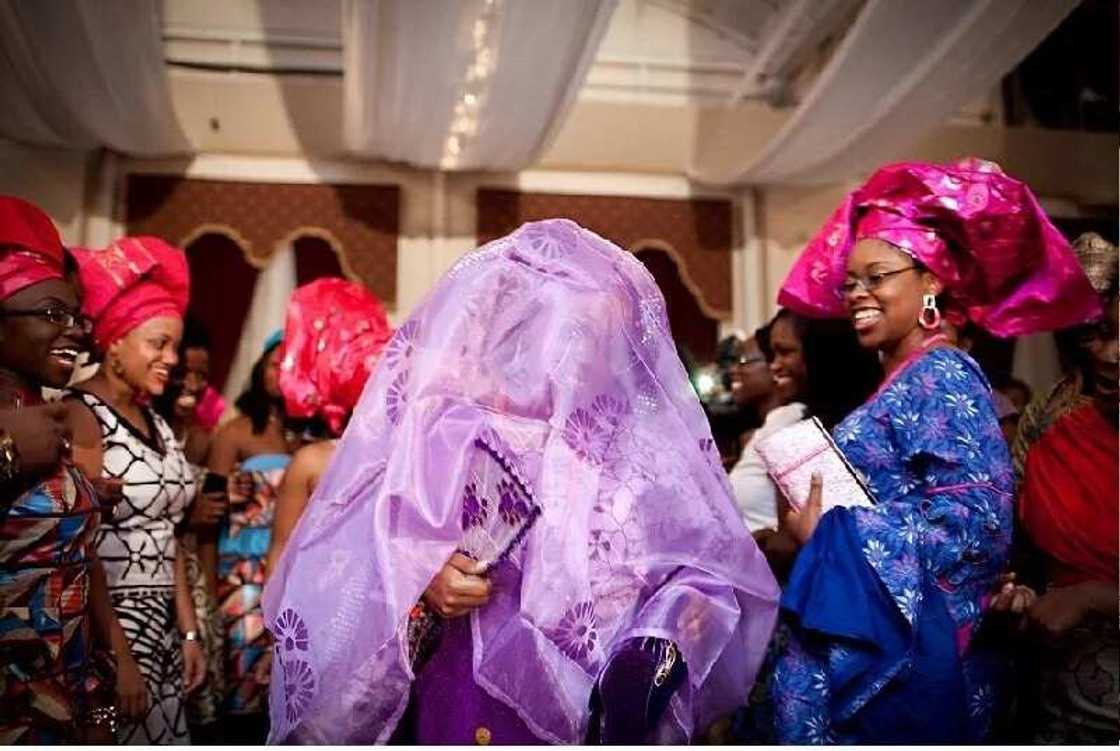
The bride is also absent in the early stages of the event. She will be with her friend’s and young ladies of her family in a room of her father’s house. The ceremony usually takes place in front of the bride’s parent house or somewhere close. When it is time for the presentation of the bride, she is herald into the venue of the ceremony followed by her friends. The bride goes through a few protocols moderated by the Alaga Ijoko some of which includes money being given to her, unlike the groom who pays money.
She is then introduced to the groom’s family before taking her seat beside the groom. After these things and some other protocols have been observed, they are now considered a couple. The bride now seen as the wife will display some marital traits such as feeding the groom some cake and wine. And even a kiss to seal it.
Engagement list in Yorubaland
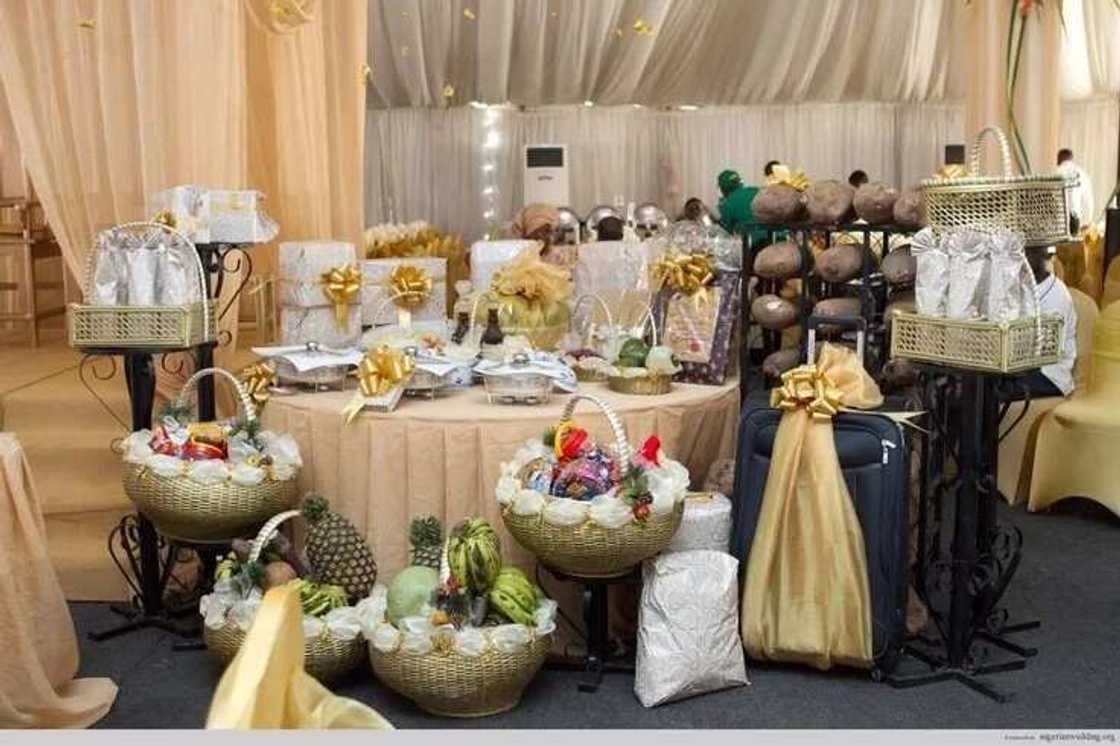
The Yoruba engagement list include the following: bag of rice, bag of sugar, large number of bitter kola, alligator pepper, bag of salt, kola nuts, tubers of yam (average of 40 to 50 tubers), bottles of honey, clothing material such as lace, pairs of shoes, wristwatch, umbrella, and a big box. If the bride’s family are Christians, a Bible is included. There might be other items but these are the common items.
The engagement list in Yorubaland also includes a bride price which is an amount of money quoted by the bride’s family and it is subject to negotiation. The bride price will be put in an envelope and presented with the other dowry items.
Besides the dowry and bride price, there are other charges in form of cash paid during the engagement as stated earlier. Some of these charges include the following:
- Owo Ikanlekun which means entrance fee – 500 Naira.
- Owo Omo Ile Okunrin – 500 Naira. This amount is paid to the young men in the family of the bride.
- Owo Omo Ile Obinrin – 500 Naira. This is money for the ladies and women of the family of the bride.
- Owo Iyawo Ile – 500 Naira. This money is for all the wives in the family of the bride.
- Owo Ijoko Agba - 1,000 Naira. This money is reserved for elders of the family of the bride.
- Owo Baba Gbo – 500 Naira. This amount is money paid to ask for the consent of the father of the bride
- Owo Iya Gbo - 1,000 Naira. This is the amount which is paid to ask for the consent of the mother of the bride.
- Owo Isigba – 500 Naira. This money is paid to the bride family before they open and inspect the gifts brought by the groom’s family.
- Owo Isiju Iyawo – 500 Naira. This money is paid for the unveiling of the bride. The bride always has a veil covering her face when she’s escorted outside.
- Owo Alaga Ijoko – 500 Naira. This money is for the Alaga Ijoko.
All these charges I depends on the financial ability of the groom;s family.
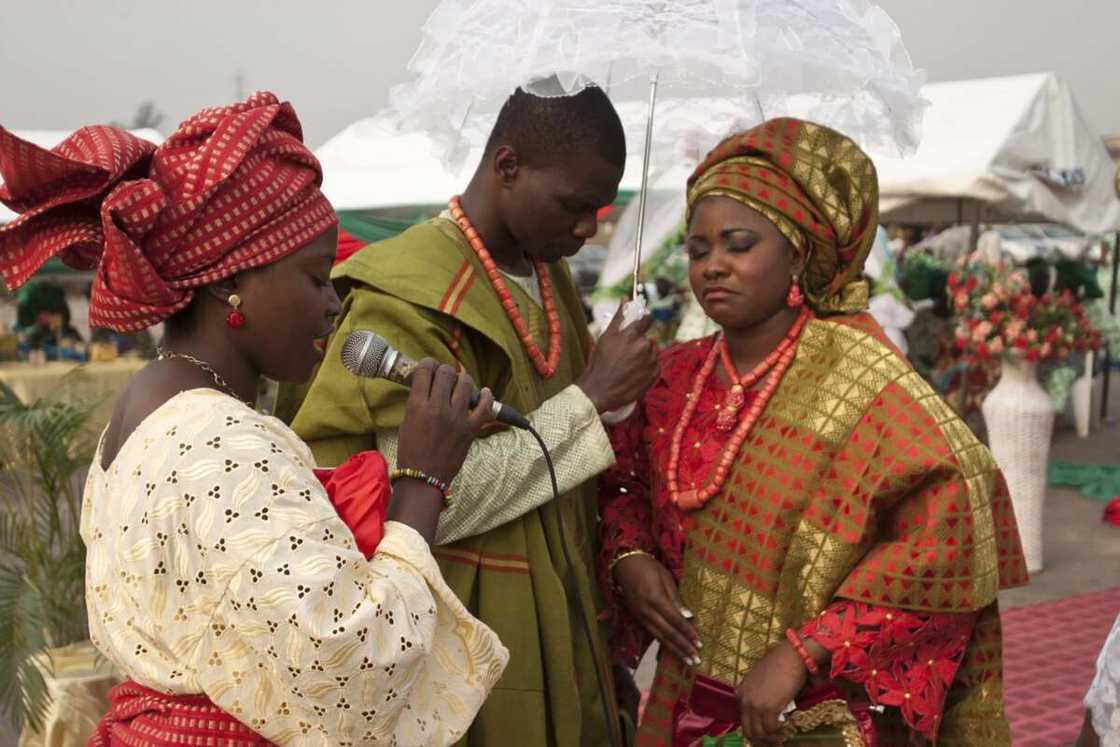
Engagement ceremonies these days usually take place on Saturday mornings followed by the white wedding. Some also have the traditional engagement ceremony a weekend or some weekends before the white wedding. If they are Christians, the white wedding takes place in church after the engagement ceremony. Muslims have a different protocol afterward which includes special prayers from Islamic scholars and religious leaders offered for the new couple.
Some families go to the registry a day or some days before the traditional engagement ceremony. All these variations depend on the couple, their families, the traditions of the families, and their religion. All these are followed by merriment known as reception party with the cutting of a big cake and lots of food and drinks.
READ ALSO: Yoruba festivals and holidays in Nigeria
Source: Legit.ng

